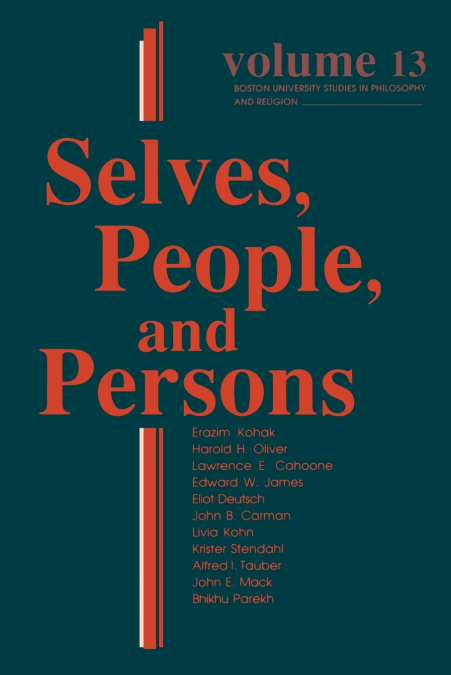
The meaning of selfhood has become an urgent question, largely in reaction to the radical individualism in which many modern Western notions of selfhood have been cast. The 11 contributors to Selves, People, and Persons aim to reshape fundamental ideas of the self in such varied fields as theology, biology, psychoanalysis and political philosophy. Nearly all of them agree that selves are always to be understood in relation to the communities of which they are a part. The first section of the book focuses on basic issues in the philosophy of selfhood. Erazim Kohak’s title essay explores American personalism while Harold H. Oliver argues that a self is always in the act of relation to some other. Lawrence E. Cahoone counters with reflections on the limits of this social and rational notion of selfhood and Edward W. James sketches a holistic view of the self in which the 'either/or' of dualism can be transformed by a 'both/and'. The second group deals with selfhood in various cultures, beginning with Eliot Deutsch’s exploration of how each tradition can enlarge its understanding of selfhood by incorporating elements from other traditions. John B. Carman examines the role of the self in Hindu 'Bhakti', and Livia Kohn explores the role of spontaneity in Chinese views of selfhood. The problem of selfhood in theology, biology, psychoanalysis and political theory comprises the final section: Krister Stendahl discusses the idea that our selfhood is understood primarily in terms of God’s selfhood; Alfred I. Tauber examines biological ideas of organism in the work of Elie Metchnikoff; John E. Mack proposes that a spiritual point of view is now required in order to fully understand the psyche; and Bhikhu Parekh examines how the issue of violence is formulated and debated in liberal democracies.